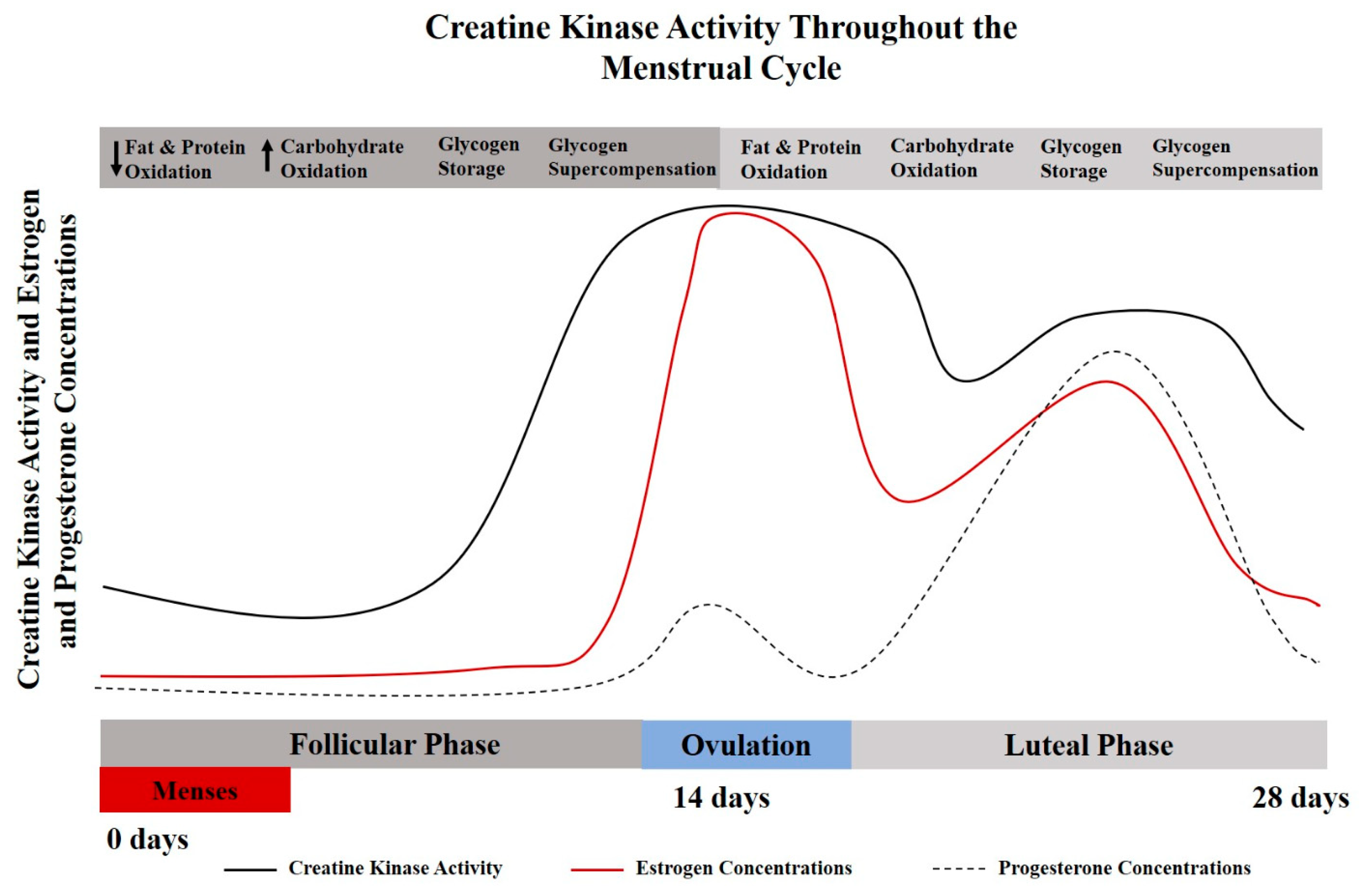Let’s talk about something that could genuinely transform your menopausal journey. Picture this: you’re navigating hot flushes, mood swings, and that frustrating muscle loss that seems to happen overnight, when someone mentions creatine supplementation. Your first thought might be of bulky bodybuilders chugging protein shakes. But what if I told you that this supplement could be particularly beneficial for women going through menopause?
The transition through menopause brings numerous physiological changes that can impact everything from your mood to your muscle mass. During this time, finding effective strategies to maintain strength, bone density, and overall wellness becomes increasingly important. While hormone replacement therapy and various lifestyle modifications are commonly discussed, creatine supplementation remains an under appreciated ally for menopausal women.

As someone who works with women navigating this life stage daily, I’ve witnessed remarkable transformations when creatine is appropriately incorporated into a wellness regimen. The research backs this up too – creatine isn’t just for young athletes looking to enhance performance; it offers specific benefits that directly address many menopausal concerns.
In this comprehensive guide, we’ll explore everything you need to know about creatine supplementation during menopause. From understanding what creatine actually is and how it works in your body to practical advice on dosage and timing, consider this your complete resource for making informed decisions about whether creatine might be right for your menopausal journey.

Understanding Creatine Basics
Creatine might sound like a complex scientific term, but it’s actually quite straightforward. At its core, creatine is an amino acid compound naturally produced in your liver, kidneys, and pancreas. Your body creates approximately one gram daily, primarily from amino acids like glycine and arginine. This substance isn’t some artificial chemical – it’s something your body already makes and uses constantly.
Beyond what your body produces internally, creatine can also be obtained through dietary sources. Animal proteins, particularly red meat and fish, contain notable amounts of creatine. A 450g steak, for instance, provides roughly 5 grams of creatine. However, to achieve optimal levels through diet alone would require consuming impractical quantities of these foods daily – particularly challenging if you’re following a plant-based eating pattern.
Once in your body, creatine plays a crucial role in energy production, particularly during high-intensity, short-duration activities. It’s stored predominantly in your skeletal muscles (about 95%), with small amounts also found in your brain and other tissues. When you engage in intense physical activity, your body converts creatine into phosphocreatine, which helps rapidly regenerate ATP – your cells’ primary energy currency.
For women experiencing menopause, understanding this energy system becomes particularly relevant. As hormonal fluctuations impact muscle mass, strength, and recovery capabilities, the efficiency of your body’s energy production systems takes on heightened importance. Creatine supplementation essentially provides your body with additional resources to maintain energy production during a time when physical resilience may be naturally declining.
What makes creatine particularly interesting for menopausal women is that females typically have naturally lower creatine stores than males. This biological difference means women often experience more pronounced benefits from supplementation, potentially seeing improvements in strength, recovery, and energy levels that directly counteract some of menopause’s most challenging physical symptoms.

The Science Behind Creatine’s Effectiveness
Diving deeper into how creatine actually works reveals why it’s particularly valuable during menopause. Your body relies on three primary energy systems during physical activity, with the ATP-phosphocreatine system being crucial for short, powerful movements like lifting weights or sprinting up stairs. This system provides immediate energy but depletes quickly – typically within 10 seconds of intense effort.
During menopause, hormonal changes affect how efficiently your body utilizes energy. Estrogen decline impacts mitochondrial function, essentially reducing your cells’ power plants’ effectiveness. This partly explains why many women notice decreased stamina and strength during this life phase. Creatine supplementation directly addresses this issue by enhancing phosphocreatine stores, allowing for more rapid ATP regeneration despite hormonal fluctuations.
Research published in the Journal of the International Society of Sports Nutrition demonstrated that women supplementing with creatine experienced approximately 15% improvement in exercise performance compared to just 6% in men – more than double the benefit. This gender difference becomes particularly significant during menopause when maintaining physical capability becomes both more challenging and more important for long-term health.
Beyond immediate energy production, creatine influences several cellular mechanisms that support menopausal women. It enhances water retention within muscle cells (intracellular hydration), creating an anabolic environment that supports protein synthesis. This becomes especially valuable as declining estrogen naturally reduces muscle protein synthesis rates during menopause.
Additionally, creatine has been shown to influence certain hormonal pathways, including potentially increasing IGF-1 (Insulin-like Growth Factor 1) activity. While this effect is modest, it provides partial compensation for the reduced anabolic environment that accompanies menopause. The cumulative effect of these mechanisms explains why creatine supplementation can help maintain muscle mass during a life phase when preserving lean tissue becomes increasingly challenging.
Specific Benefits for Menopausal Women
The menopausal transition brings distinct physiological challenges that creatine supplementation can help address. Perhaps most significant is the accelerated loss of muscle mass and strength that typically occurs. Research indicates that women may lose up to 10% of their muscle mass during the perimenopausal and early postmenopausal years – a concerning statistic given that muscle tissue plays crucial roles in metabolism, glucose regulation, and overall functionality.
Studies focusing specifically on menopausal women have demonstrated that creatine supplementation, when combined with resistance training, can significantly counteract this muscle loss. One particularly compelling investigation published in the European Journal of Applied Physiology found that postmenopausal women taking creatine alongside a structured resistance training programme experienced nearly twice the increase in lean muscle mass compared to those doing identical training without supplementation.
Bone health represents another critical concern during menopause. The rapid decline in estrogen levels accelerates bone mineral density loss, increasing fracture risk substantially. Emerging research suggests creatine may support bone health through multiple mechanisms. It appears to enhance the activity of osteoblasts (cells that build bone) while potentially reducing inflammatory markers that contribute to bone resorption. While not a replacement for established bone-supporting interventions, creatine provides complementary support during this vulnerable period.
Cognitive function often becomes a concern during menopause, with many women reporting “brain fog,” memory lapses, and reduced mental clarity. Intriguingly, creatine supplementation shows promise for cognitive support as well. Your brain requires substantial energy to function optimally, and creatine enhances cerebral energy metabolism. Studies have demonstrated improvements in cognitive processing speed and memory in participants supplementing with creatine, with some research suggesting women may experience more pronounced cognitive benefits than men.
Perhaps most surprising to many women is creatine’s potential impact on mood regulation. Research published in the American Journal of Psychiatry found that women with depression who supplemented with creatine alongside their antidepressant medication responded twice as quickly and experienced remission at twice the rate compared to those taking only medication. While more research is needed, these findings suggest creatine may help address the mood fluctuations common during menopause.

Debunking Common Creatine Myths
Despite extensive scientific validation, creatine remains surrounded by persistent misconceptions that often deter women from considering this beneficial supplement. Let’s address these myths directly with evidence-based clarity. Perhaps the most common concern involves weight gain. Many women worry that creatine supplementation will cause them to become bulky or retain water in ways that increase scale weight.
The reality is more nuanced. While creatine does promote intracellular water retention (water inside your muscle cells), this differs significantly from the subcutaneous water retention that causes visible bloating. The modest weight gain some experience – typically 1-2 pounds – reflects this intracellular hydration, which actually contributes to improved muscle function and protein synthesis. Importantly, this isn’t fat gain, nor does it create a puffy appearance. Rather, it reflects muscles becoming better hydrated and primed for activity.
Another prevalent myth suggests creatine supplementation harms kidney function. This misconception stems from confusion between creatine and creatinine (a breakdown product measured in kidney function tests). Multiple long-term studies, including those examining individuals with pre-existing kidney conditions, have found no adverse effects on kidney function with recommended creatine dosages. The International Society of Sports Nutrition’s position stand confirms creatine’s safety profile when used appropriately.
Some women avoid creatine due to concerns about hair loss, a particularly sensitive topic during menopause when hormonal changes may already affect hair quality. This myth originated from a single study in men with a genetic predisposition to male pattern baldness. No research has demonstrated similar effects in women, and the original study has not been replicated. Extensive reviews of creatine research show no connection between appropriate supplementation and female hair loss.
Digestive discomfort represents another commonly cited concern. While some individuals do experience mild gastrointestinal symptoms when beginning supplementation, these typically resolve with simple adjustments. Dividing your daily dose, ensuring adequate hydration, and taking creatine with meals can eliminate these temporary issues. Selecting high-quality, pure creatine monohydrate without unnecessary additives also reduces the likelihood of digestive complaints.
Choosing the Right Creatine Supplement
Navigating the supplement aisle can feel overwhelming with numerous creatine formulations making bold claims. For menopausal women, selecting the appropriate product becomes particularly important. Despite marketing suggesting otherwise, research consistently demonstrates that creatine monohydrate remains the gold standard form. This classic formulation offers superior bioavailability, extensive safety data, and cost-effectiveness compared to newer, more expensive variants.
**There is no such thing as “Women’s Creatine, this is simply a marketing tactic.
When selecting a creatine supplement, purity should be your primary consideration. Look for products that list “creatine monohydrate” as the sole or primary ingredient. Avoid complex proprietary blends with numerous additives, artificial colours, or excessive sweeteners. These unnecessary ingredients increase the likelihood of digestive discomfort without enhancing effectiveness. Third-party testing certification from organisations like Informed Choice or NSF Certified for Sport provides additional quality assurance.
The physical form of creatine – whether powder, capsule, or liquid – primarily affects convenience rather than effectiveness. Powdered creatine offers the most economical option and allows for flexible dosing, though it requires mixing. Capsules provide convenience for travel or those who dislike the mildly bitter taste of powdered creatine. Liquid formulations, while convenient, typically contain stabilizers and may offer less reliable potency over time.
Micronized creatine represents a variation worth considering for menopausal women who experience digestive sensitivity. This process reduces particle size, potentially improving mixability and digestive comfort without altering the fundamental effectiveness of creatine monohydrate. While slightly more expensive than standard creatine monohydrate, this option may prove worthwhile for those with sensitive digestive systems.
For vegetarian or vegan menopausal women, selecting a supplement explicitly labelled as vegetarian/vegan becomes important, as some creatine is manufactured using animal-derived precursors. Additionally, since plant-based diets naturally provide less dietary creatine, supplementation becomes particularly valuable for maintaining optimal creatine stores during menopause when following these eating patterns.
Optimal Dosage and Timing for Menopausal Women
Determining the ideal creatine protocol during menopause requires balancing effectiveness with practicality. While traditional “loading” protocols (taking 20g daily for 5-7 days) accelerate saturation of muscle creatine stores, this approach isn’t necessary and may cause temporary digestive discomfort in some women. For most menopausal women, a simpler approach proves equally effective over time.
A daily intake of 3-5 grams of creatine monohydrate represents the sweet spot for most menopausal women. Those with larger body sizes or higher activity levels may benefit from the upper end of this range, while smaller individuals or those new to supplementation might start at the lower end. This consistent daily dosage allows creatine stores to reach optimal levels within approximately three weeks, after which the benefits become fully apparent.
Contrary to common supplement advice, the timing of creatine intake matters less than consistency. Unlike pre-workout stimulants or post-workout protein, creatine works through a cumulative effect of maintaining saturated muscle stores rather than providing an immediate boost. Taking your daily dose at whatever time fits reliably into your routine ensures compliance – the most important factor for long-term benefits.
Some research suggests potential advantages to taking creatine alongside carbohydrates or protein, as these nutrients may enhance cellular uptake through insulin-mediated mechanisms. For menopausal women concerned about blood sugar regulation, pairing creatine with a balanced meal containing both protein and complex carbohydrates represents a sensible approach that may optimize absorption while supporting stable glucose levels.
For those experiencing sleep disturbances during menopause – a common complaint – morning supplementation may be preferable. While limited research suggests creatine might influence sleep patterns by affecting brain energy metabolism, morning dosing eliminates any potential concerns while ensuring consistent supplementation. As with any supplement regimen, monitoring your individual response remains important.
Integrating Creatine with Exercise for Maximum Benefit
While creatine offers benefits even without exercise, its effects multiply significantly when combined with appropriate physical activity. For menopausal women, resistance training represents the ideal companion to creatine supplementation. This exercise modality directly addresses the accelerated muscle loss common during menopause while maximising creatine’s muscle-preserving properties.
Research specifically examining menopausal women demonstrates that combining creatine with resistance training produces superior outcomes compared to either intervention alone. One particularly relevant study found that postmenopausal women following this combined approach experienced approximately 67% greater strength gains compared to those doing identical training without supplementation. These enhanced results directly counter the strength declines typically associated with menopause.
The exercise protocol need not be complex or excessively time-consuming. Two to three weekly sessions focusing on compound movements that engage multiple muscle groups – such as squats, rows, chest presses, and deadlift variations – provide an efficient approach. Aim for 2-3 sets of 8-12 repetitions per exercise, using weights challenging enough that the final repetitions require significant effort.
Integrating Creatine with Exercise for Maximum Benefit
For more quality training information please visit The Performance Hub Blog – CLICK HERE.
To check out The Performance Hub Podcast – CLICK HERE.
To learn more about The Performance Hub and our programs CLICK HERE to chat with a coach!


